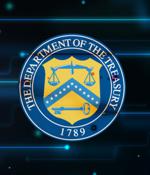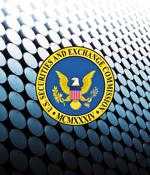Security News

The US Treasury Department announced the first-ever sanctions against a cryptocurrency exchange, the Russian-linked Suex, for facilitating ransom transactions for ransomware gangs and helping them evade sanctions. By sanctioning crypto exchanges providing ransomware groups with material support, the US hopes to drain their funding and disrupt their operations.

New Cooperative Inc., an agricultural cooperative owned by Iowa corn and soy farmers, has been hit by the BlackMatter ransomware group. The attackers are asking the co-op to pay $5,900,000 for the decryption key and not to release the stolen data.

U.S. farmers cooperative NEW Cooperative has suffered a BlackMatter ransomware attack demanding $5.9 million not to leak stolen data and provide a decryptor. NEW Cooperative is a farmer's feed and grain cooperative with over sixty locations throughout Iowa.

Cities, states, federal and military agencies should patch the Laserfiche CMS post-haste, said the security researcher whose jaw dropped at 50 sites hosting porn and Viagra spam. Gov domain hosting the offending files and displaying a specific Laserfiche error message.

A security researcher noticed all of these sites share a common software vendor. Mil domains using a common software product provided by Laserfiche, a government contractor.

Australia, the United States of America, and the United Kingdom have signed a new defence and technology-sharing pact. Dubbed AUKUS, the headline item of the pact is assistance from the UK and US to help Australia build nuclear-powered submarines that are interoperable with their own fleets.

Three former US intelligence and military operatives broke America's weapons export and computer security laws by, among other things, helping the United Arab Emirates hijack and siphon data from people's iPhones, it emerged on Tuesday. US citizens Marc Baier, 49, and Ryan Adams, 34, and ex-citizen Daniel Gericke, 40, were charged [PDF] with using "Illicit, fraudulent, and criminal means, including the use of advanced covert hacking systems that utilized computer exploits obtained from the United States and elsewhere, to gain unauthorized access to protected computers in the United States and elsewhere and to illicitly obtain information ... from victims from around the world."

The questions have gotten more sophisticated and less suspicious. I've noticed a significant uptick in Facebook questions that ask users to answer seemingly innocent questions one wouldn't think could put anyone in danger.

The Jenkins team issued a reminder over the weekend that one should keep one's systems patched as it found itself with a compromised Confluence service. Although the affected instance of Confluence integrated with the company's identity system, the group said: "At this time we have no reason to believe that any Jenkins releases, plugins, or source code have been affected."

The US Securities and Exchange Commission has warned investors to be "Extremely wary" of potential investment scams related to Hurricane Ida's aftermath. This alert comes from SEC's Office of Investor Education and Advocacy, which regularly issues investor alerts to warn investors about the latest investment frauds and scams.